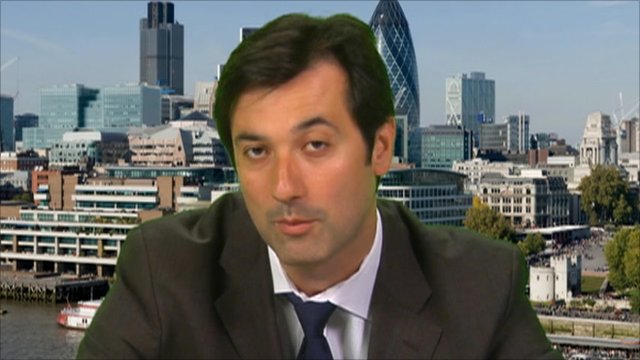Photo: Ethnos
The long awaited roundtable with the Greek government, which was originally supposed to take place in late April but due to the 6 May elections was postponed until early June and then, because of the June elections was postponed until today, was actually held. Well, it was far from what was announced. For example, supervisory Troika representatives, who will probably arrive in Athens on Wednesday, were absent from the agenda. Prime Minister Antonis Samaras, whose eye disease had apparently become serious and did not allow him to speak at the forum, was absent too.
Of course, this is not diminishing the importance of the round table, which was opened by the Member of the Executive Board of the European Central Bank Joerg Asmussen. "The difficulties that Greece is currently experiencing do not stem from the programme agreed with the Troika. They stem from many years of unsustainable economic policies," he said firmly. In his opinion, confidence in the euro area and its competitiveness could be restored through a combination of measures to be taken inside the countries themselves and reforms in the euro area institutions.
 "Institutional reforms at the organizational level cannot be a substitute for national reforms. Both types of measures should be taken in parallel," the representative of the European Central Bank warned. He recalled that Greece has done much to reduce its budget deficit from 15% to 9%, but it is not enough. Greece continues to form a primary budget deficit and the debt-to-GDP ratio is far from being considered a sustainable ratio of 120%.
"Institutional reforms at the organizational level cannot be a substitute for national reforms. Both types of measures should be taken in parallel," the representative of the European Central Bank warned. He recalled that Greece has done much to reduce its budget deficit from 15% to 9%, but it is not enough. Greece continues to form a primary budget deficit and the debt-to-GDP ratio is far from being considered a sustainable ratio of 120%.
"The first priority for the new Greek government has to be getting the fiscal consolidation programme back on track. Many people will ask why, since it has failed and the people in Greece blame it for their troubles. The difficulties that Greece is currently experiencing do not stem from the programme. With or without the programme, the Greek government would have to pursue a similar adjustment. With the programme, this adjustment is made much smoother. Without it, the adjustment would have to be much faster and more drastic," Joerg Asmussen said.
According to the banker, the Greeks themselves have demanded many of the reforms - such as the reduction of the public sector and the growth of the private sector. "Nobody likes a policy that has no alternatives. The European Central Bank insists that Greece remains in the euro area," he said. "The countries receiving financial assistance must be implementing their programmes. For Ireland and Portugal, this means maintaining their strong track record of implementation. For Spain, it means a convincing recapitalization plan. For Cyprus, it means finally addressing its macroeconomic and financial sector vulnerabilities," he said.
Joerg Asmussen spoke about the institutional reforms needed to resolve the crisis in the euro area - the financial market union, which must break the link between banks and their sovereigns, the fiscal union, which will be the base of Euro bonds. Institutional reforms, however, cannot substitute the reforms inside the states. Both changes must take place in parallel, concluded the Member of the Executive Board of the European Central Bank.
Gilles Moec, Managing Director at Deutsche Bank, said that the debt-gross domestic product ratio is
